On this page...
Road Condition Reports
- Who: Iowa DOT plows only (not city or county)
- What: Winter road conditions on interstates, U.S. and state highways (not county roads or city streets) in Iowa
- When: October 15 through April 15, Road conditions are updated every two hours or as conditions change
- Why: To help you make safer travel decisions
Note: Road condition reports are made by Iowa DOT field forces. We do everything we can to report accurate conditions, but in a winter storm, those conditions may change rapidly. It is possible you’ll see a different condition before the next report is made on the 511 system.
Back to topRoad Condition Definitions

Seasonal (green)
The roadway is dry or wet, and is generally clear. However, isolated frozen precipitation may exist, including icy bridge decks.
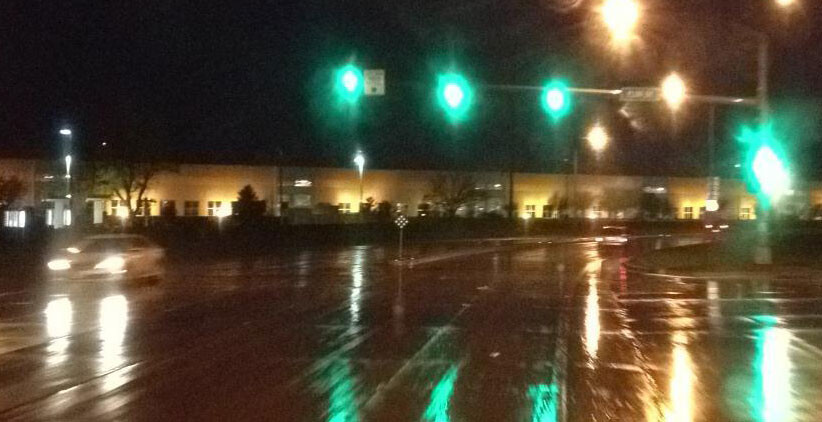
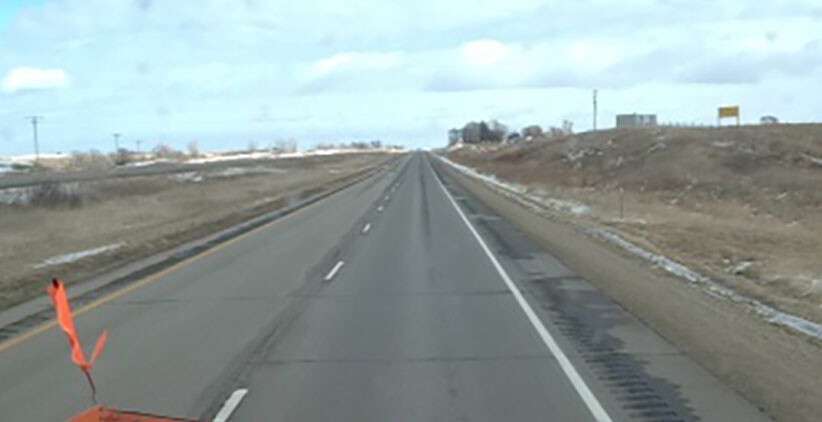

Partially Covered (blue)
Frost, ice, sleet/slush, snow or a mixture of precipitation is causing the roadway to be partially covered. Drivers may experience periods when roadway markings are difficult to see. The roadway surface may become slick, snow packed and rutted. Moderate blowing and drifting snow along with occasional drifts may be encountered.

Partially covered with ice (blue with white dots)
Ice covers a significant portion of the roadway. Although some pavement remains ice-free, traction may be greatly reduced. Drivers should use caution, slow down, and be prepared for sudden slippery spots.
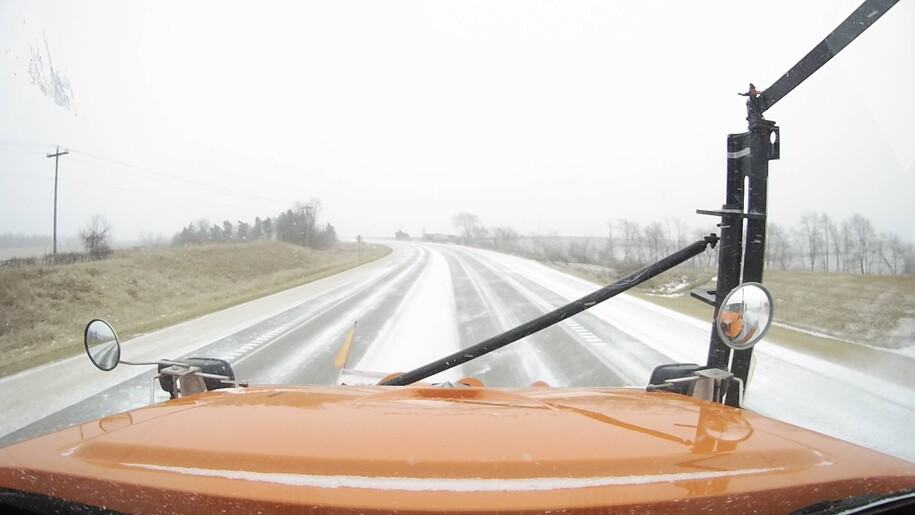
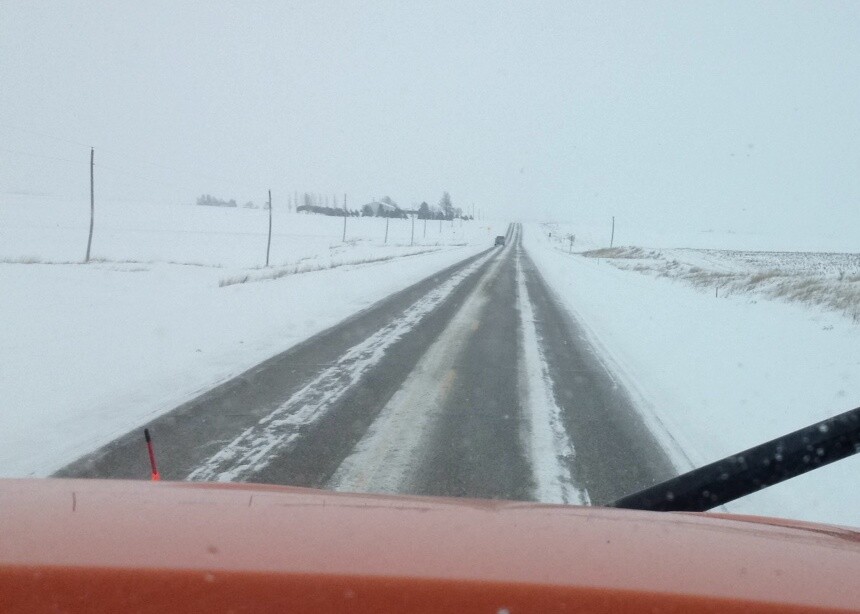

Completely Covered (pink)
The roadway is completely covered with precipitation. Accumulation is to the point that the roadway markings are most likely obscured, making it difficult to differentiate between the roadway and its surroundings. These conditions could make travel difficult or hazardous.

Completely Covered with ice (pink with white dots)
Ice covers the entire roadway. Extremely slippery conditions should be expected, with significantly reduced traction. Travel at reduced speeds and consider delaying trips until conditions improve.
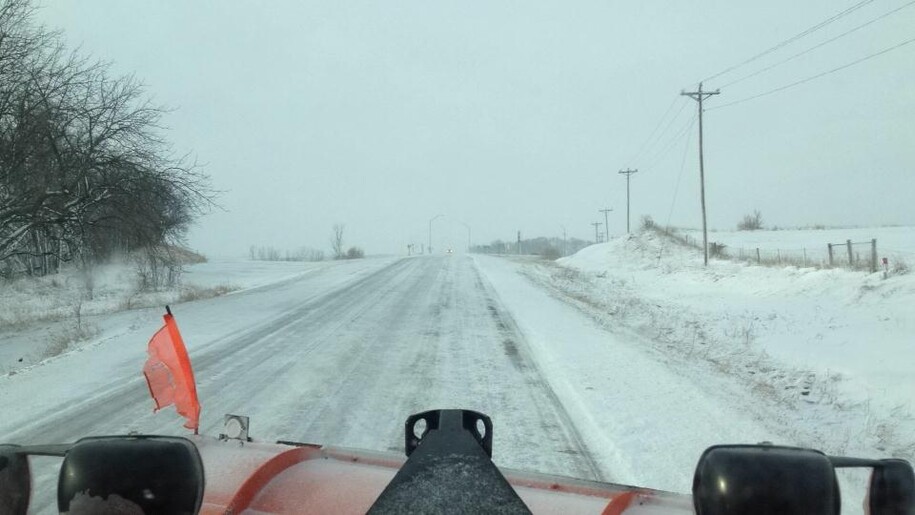
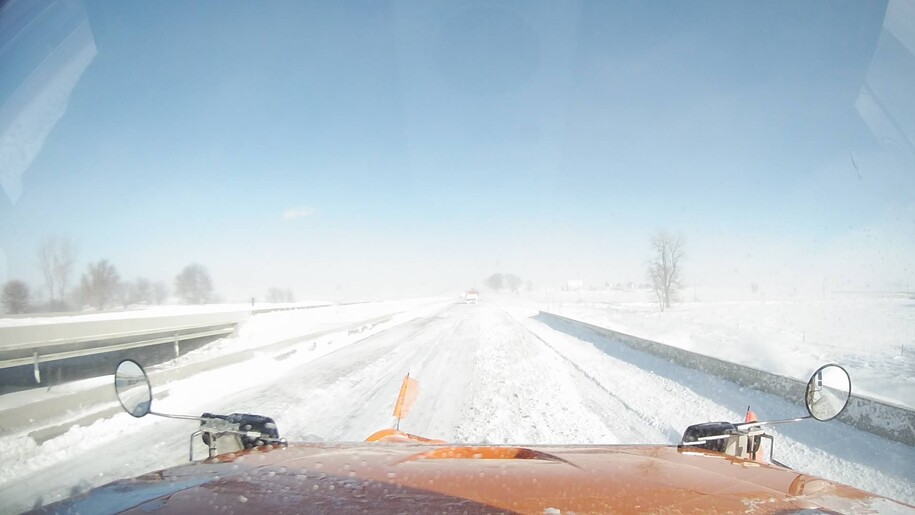

Travel Not Advised (purple)
The roadway has deteriorated to the point that it is very dangerous to travel. Emergency vehicles and snowplows may be called off of the roadway due to the conditions. In the event of an emergency, it may be impossible to get emergency vehicles to the scene.
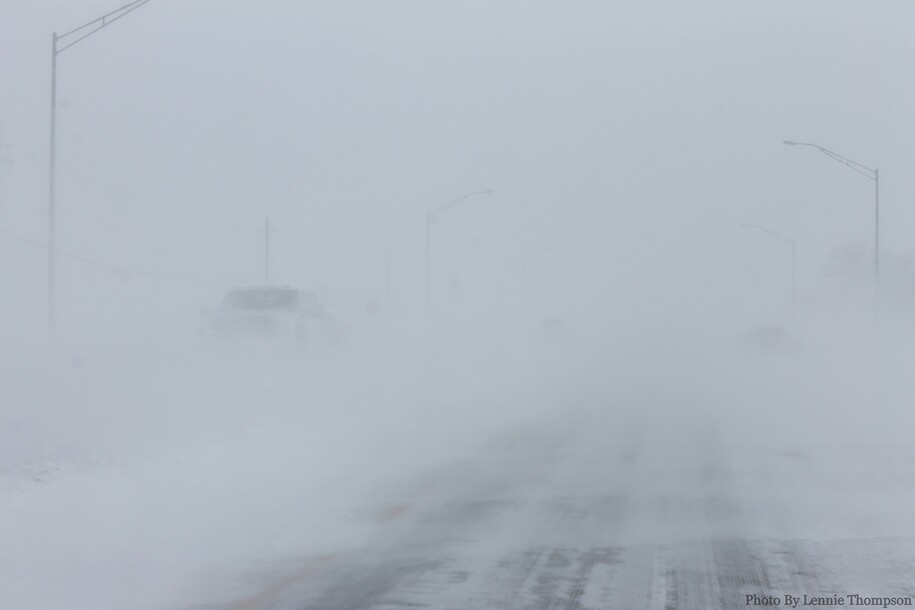

Impassable or Closed (red with black dots)
A road that is impassable is blocked by snow or disabled vehicles. A road that is closed has travel restricted by barricades, fence, gate, official equipment/vehicles or other physical means. Iowa law prohibits motorists from entering a closed roadway or moving traffic control devices.
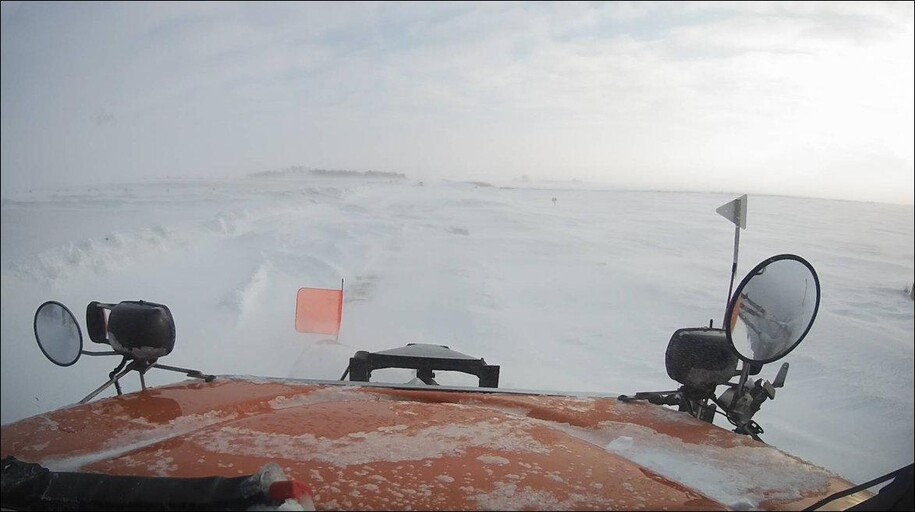
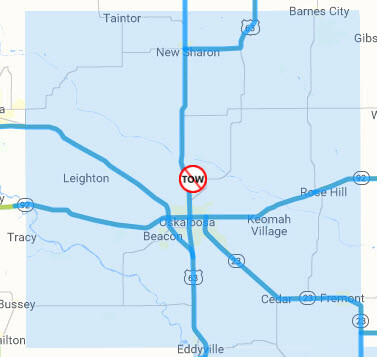
Towing Not Recommended (light blue shaded county shape)
It has been determined that weather conditions are, or have deteriorated to the point that it is too dangerous to provide towing or roadside services. Tow truck operators should wait until conditions improve before removing stranded vehicles, for everyone's safety. If your vehicle is stalled or stuck we encourage you find a ride to a safe location.
Back to top
Routes the Iowa DOT Covers
Our field forces are responsible for approximately 25,000 miles of interstate, U.S., and state highways. Cities and counties are responsible for the maintenance of their own highways and bridges.
Our plows are out 24/7 when necessary. City and county crews are often called off the roads at night, so there may be very different travel conditions on Iowa DOT-maintained roads and city or county routes during a snowstorm that happens at night.
Back to topA Little About Our Snowplow Routes
With about 850 plow drivers to cover 25,000 miles of road, each plow route averages about 29 miles. In a major storm, those plow drivers are split into shifts, making even fewer drivers available at one time.
When plows are out in a storm, they travel at between 25 and 35 mph, and sometimes even slower. That means it will take between two and three hours to complete the round trip on each route. Keep in mind, in storms with heavy snow and strong winds, snow may blow back on the road before the plow can get around again, making it appear that the plow has not been there yet.
Back to topFind the Plows Near You
The easiest way to see where we’re plowing in your area is to go to the Iowa 511 site and open the “plow locations” layer. You can also open the “plow cameras” layer to see what our snowfighters are seeing on the roads.
Back to top